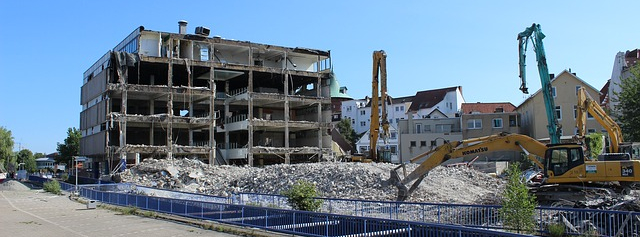
(Way With Worlds runs at MuseHack, Seventh Sanctum, and Ongoing Worlds)
My friend Serdar, in writing Flight of the Vajra (which I edited, I admit, but I enjoyed the hell out of it) is fond of noting the plot happened when he realized his setting didn’t hold together. The novel is basically about things not working, or as I like to put it ,having more questions than answers is bad, but more answers than questions is worse.
What Serdar says sounds both wise and flies in the face of a lot of the attitudes heavy Worldbuilders may take. We want things to make sense. We want it to hold together. We want it to work.
But sometimes the tale is what happens when it doesn’t work. Maybe it’s a disaster. Maybe it’s a transition. Things are always in transition anyway.
So before you look at your latest world, at your latest change, and decry how you can’t see how the kingdom survives, or the galaxy prospers, or whatever remember that you may have just found the story you were looking for. The world breaking is the story.
The problem however is that you don’t know if you’ve done bad worldbuilding or that you’ve created a good but unsustainable setting. Maybe the setting falling apart is because your exquisite sense of detail has led to an inevitable conclusion – or maybe you just did a crappy job.
So it’s time for some questions.
Question 1: Why Does It Break?
First of all you have to ask just why your setting seems destined to fall apart. I mean if things are going to break down you have to know why?
- If it is because things just don’t seem to make sense, then the fault is probably yours.
- If the falling apart occurs because of elements in the setting, it may just be an unexpected feature. If you see a race war between elves and dragons as inevitable despite a fragile peace that was hard-won you don’t have a problem – you have a game, a story, or a RPG session
Question 2: How Did We Get Here?
You look at your setting and realize it’s going to go down in flames. Is this a story to tell or is this a mistake on your part? Part of the question is asking why this is all happening.
- * Are there reasons for the setting to get to the point f degrading that make sense in the context of the world? Can you explain why the Star Empire would survive the first hundred years but not the next two? In short, can you see your setting existing, but eventually falling apart.
- * If you can’t explain how your setting would get to the point where it would then fall apart you have a problem. Essentially the setting has shoddy infrastructure anyway and falling over is your mistake, not a feature. It should never have been big enough to fall apart.
Keep Asking
Those two questions can essentially tell you if you have a story – if the breakdown makes sense and the setting is reasonable up to the point of the breakdown. With both those traits you have at tale – without, you have mistakes in your setting.
However, maybe that’s not what you want to great in a story or game or comic . . .
But I’m Not Interested In Writing It Falling Apart
Sometimes we discover we’re not writing the tale we wanted or crafting the game we intended. That’s a bit of a tough call. A few pieces of advice I can provide is:
- Change perspectives. Maybe the giant collapse is something you can write from a different perspective then intended. Maybe your perspective is the problem, and once you’re in a character or two’s heads the setting’s problems are things you want to write.
- Back up. Back up a few years before everything goes straight to hell, and tell your story from there – though the coming collapse may annoy you.
- Jump forward. Jump up your timeline and see if the setting eventually evolves to the kind you want to write.
- Re-engineer. The hardest thing to do is re-engineer your setting to remove the relevant apocalypse. That is something that’s a bit challenging and potentially can tempt you to dishonesty. I’d say go for it, but if you can’t truly do it, hen you have to conclude your setting is what it is.
- Quit. Not recommended. Staring over is kind of coping out and you have all that hard work.
Your call on these things. Though I’m not up for quitting – after all if you ram through you may find you want to write the end of the world after all.
It’s Part Of What You Do
Finding your setting is going to fall apart is one of the challenges of worldbuilding. It can shock us and surprise us and derail us.
However it’s also one of the benefits of the craft. Unexpected findings, challenges, settings coming to life are part of the magic of worldbuilding. Though it may alter our lans, at least it’s doing so in a way that truly surprises and inspires and comes to life.
Well, assuming its because the world was well built, but you get the idea . . .
Steven Savage is a Geek 2.0 writer, speaker, blogger, and job coach. He blogs on careers at http://www.musehack.com/, publishes books on career and culture at http://www.informotron.com/, and does a site of creative tools at http://www.seventhsanctum.com/. He can be reached at http://www.stevensavage.com/.




